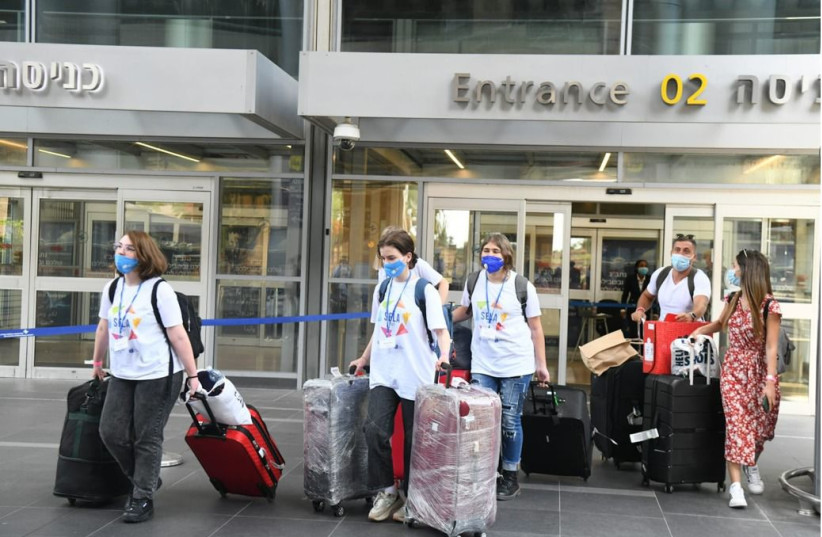A new survey conducted by the Center for Jewish Impact in partnership with the Geocartography Knowledge Group on Israel-Jewish Diaspora Relations shows that nearly 82% of Israelis view Israel as the safest place for Jews – therefore, Jews outside of Israel should make aliyah.
Most Israelis also believe that the Law of Return should remain unchanged, despite recent calls to amend it. However, 66.5% of Israelis said they believe that Diaspora Jews should not be involved in Israeli affairs.
The survey conducted online with a sample of 500 Israeli Jews aged 18 and over in the last week of December, sheds light on Jewish Israeli perceptions of the relationship between Israel and the Jewish Diaspora.
What are the survey's results?
Despite Israel’s current security situation, Israelis seemingly perceive antisemitism as a worse threat, as 82% believe that the safest place for Jews is Israel in today’s climate. A longitudinal comparison of this question shows a significant increase in this belief, as compared to 76.2% in 2020.


58.8% of respondents agreed that the Diaspora acts as Israel’s first line of defense against elements hostile to the country. However, despite the importance of the Diaspora expressed by this finding, 66.4% of Israelis believe the Diaspora does not have a right to be involved in Israeli affairs, since they don’t live in Israel.
“This survey offers a valuable perspective on the complex dynamics between Israel and the Diaspora and underscores the importance of strengthening this relationship,”
Robert Singer, chairman of Center for Jewish Impact
This calls into question the relationship dynamics between Israel and the Diaspora, as the latter is expected to defend Israel from the outside, yet is excluded from intervening in Israeli affairs – which often impacts them anyways.
The politically charged issue of amending the Grandchild Clause in the Law of Return was also addressed in the survey: 61.4% of Israelis expressed concern that changing it will jeopardize the relationship between Israel and its Diaspora brethren. This belief was found to be significantly weaker among male and Orthodox or ultra-Orthodox respondents.
Respondents were asked to assess the impact of the new Israeli government on the relationship between Israeli society and the Diaspora, and whether it will strengthen it, or alienate them, as a result.
The survey found that 48% were certain the relationship will grow distant, with the belief stronger among high-income and secular individuals; 23.6% were certain the relationship will grow closer; while 28.4% believed the relationship will remain unchanged, a belief stronger among the Orthodox and ultra-Orthodox population.
“This survey offers a valuable perspective on the complex dynamics between Israel and the Diaspora and underscores the importance of strengthening this relationship,” Robert Singer, chairman of Center for Jewish Impact told The Jerusalem Post.
He added that “the rise of global antisemitism has only heightened the belief that Israel is the safest place for Jews, and therefore Israel should facilitate aliyah and not hinder it by amending the Law of Return.”
![American and Israeli Jews [Illustrative] American and Israeli Jews [Illustrative] (photo credit: REUTERS)](https://images.jpost.com/image/upload/q_auto/c_fill,g_faces:center,h_537,w_822/433149)